Plenty of talent, but just missing a top four spot has been costly for West Coast two years in a row now. Photo: AFL MEDIA
WEST COAST
2020 record: 12 wins, 6 losses (7th)
THE INS
Alex Witherden (Brisbane), Zac Langdon (GWS), Luke Edwards (Glenelg), Isiah Winder (Peel Thunder), Zane Trew (Swan Districts)
THE OUTS
Tom Hickey (Sydney), Lewis Jetta (delisted), Will Schofield (retired), Hamish Brayshaw (delisted), Francis Watson (delisted), Nic Reid (delisted), Anthony Treacy (delisted), Mitch O’Neill (delisted)
THE STRENGTHS
By winning 11 of their last 13 home-and-away games last year, including an eight-match winning streak, the Eagles showed they were still a force to be reckoned with. This was reflected in the All-Australian team, with Nic Naitanui, Liam Ryan and Brad Sheppard all gaining selection. After so many injury problems and at the ripe old age of 30, Naitanui arguably put together his best year of footy. He’s always been influential, and very much a barometer for the Eagles, but his impact on games went to another level again in 2020, so much so that Geelong coach Chris Scott famously said after playing West Coast in round nine: “The problem with kicking goals against West Coast is the ball goes back to the middle.” Naitanui ranked No.2 in the league for hit-outs and sixth for clearances, his ferocious attack on the ball with his huge frame coupled with his ability to just will the pill forwards making him an irrepressible force in the middle. He was the main reason West Coast ranked No.3 for clearances on differentials. “Flyin’ Ryan” also reached new heights (metaphorically on this occasion) last season, and is now arguably the best field kick in the competition. Brad Sheppard was rock solid in defence, coming in at No.8 in the AFL for marks, while fellow defenders Liam Duggan and Tom Barrass were ranked 11th and 14th respectively. With that trio joined by the likes of superstars Jeremy McGovern, Jack Darling, Shannon Hurn and Josh Kennedy, the Eagles finished 2020 ranked second for contested marks on differentials, and fourth for marks. Andrew Gaff also had a superb season on the wing, finishing with the sixth-most disposals in the league at a healthy average of 24 per game – an effort which earned him membership in the initial 40-man All-Australian squad. Kennedy might have been slow out of the blocks, but much like his team, he started to get cranking at about round five and finished the year with the equal-second most goals in the AFL and third most marks inside 50, his final haul of 34.22 proving there’s still life left in the 33-year-old’s stuttering legs. His partner-in-crime Darling (30.12) also had an impressive season, finishing fifth in the league for goal assists and fourth for contested marks. West Coast’s scoring efficiency in general was remarkable – they finished bottom four for total inside 50s, yet came in at No.2 for goals per inside 50. Imagine how good they would be if their forward supply enjoyed a decent increase? Tim Kelly might not have set the world on fire in his first year with West Coast, but he was still third in the league for goal assists and top 10 for inside 50s. The Eagles also look like they’ve well and truly discovered a couple of new bookends at either end of the ground in forward Oscar Allen and backman Josh Rotham. Meanwhile, if Elliot Yeo can overcome his osteitis pubis, he will join forces with Gaff, Dom Sheed, Naitanui, Luke Shuey and Kelly to form one of the most ominous midfield units in the competition.
PLEASE HELP US CONTINUE TO THRIVE BY BECOMING AN OFFICIAL FOOTYOLOGY PATRON. JUST CLICK THIS LINK.
THE WEAKNESSES
West Coast’s mentality and public statements about heading into the hub early in the season weren’t very professional and seemed to set the tone for its slow start. Rather than accept their lot and move on, coach Adam Simpson was pretty critical of the whole idea, and so it came as little surprise that the Eagles began 1-3. They got their act together towards the end of their stay in the hub, and then really hit their straps when they returned to Perth, but for the second year in a row, they narrowly missed out on a top-four spot and the crucial double chance, and it could be argued that the club’s petulant attitude early on cost it dearly in the long run. Adding salt to the wound was the stunning one-point loss to Collingwood in the elimination final in Perth after the visitors had to endure a less-than-ideal preparation, which included strict quarantine. For the second year in a row, West Coast suffered a disappointing exit from the finals after tasting the ultimate success in 2018, and given the Magpies were absolutely smashed a week later by Geelong, it had to make the Eagles’ first-week exit feel even worse. West Coast probably still has a year or two with its current core of players to have a crack at a flag, but the Eagles have really let two big opportunities slip in the last two years, their 2019 tilt railroaded by bottom-10 team Hawthorn in the final round in Perth. The Eagles will definitely want an increased level of output from Kelly in 2021 and beyond given how much they gave up to secure his services, while concerns still hover over Yeo (groin), Mark Hutchings (knee) and Daniel Venables (concussion). The fact Yeo is still no certainty to play in round one after not having played since August would make West Coast fans feel a little uneasy. And the constant uncertainty surrounding Willie Rioli, who is still waiting to learn his fate for an ASADA breach in late 2019, must also be an unwanted distraction, especially because he’s such a talented player and the Eagles would so dearly love to have him back playing again. As mentioned earlier, they struggled to get the ball inside 50 enough, which meant they finished the season with only the seventh-best attack in the competition. When you have Kennedy, Darling, Ryan, Allen and Jamie Cripps in your forward line, you should be ranked a lot higher than seventh. They’re not making the most of having so much talent in attack, and should have hit the scoreboard a lot more often than they did.
ONE TO WATCH
A bit of a late bloomer, but Rotham, who turns 23 later this month, really impressed in his 10 games last year, so much so he was presented with the Emerging Talent Award by the club. The medium-sized defender is versatile and cemented a spot in the team’s backline in the second half of the year before a heel injury forced him out of the finals. He can play on bigs and smalls and appears to be a big part of the Eagles’ plans for the future.
UNDER THE PUMP
It might sound funny placing a guy who averaged 20 touches a game and finished in the top three at the club for contested possessions and clearances as well as No.1 for tackles in this category, but Kelly just seemed to struggle to have the same kind of impact on games as he did in his first two glittering years at Geelong. A victim of his own ridiculously high standards, the star midfielder is definitely capable of taking it up another notch or two, and the West Coast hierarchy will be hoping that occurs sooner than later.
BEST 22
B: Liam Duggan, Tom Barrass, Tom Cole
HB: Shannon Hurn, Jeremy McGovern, Brad Sheppard
C: Andrew Gaff, Elliot Yeo, Dom Sheed
HF: Liam Ryan, Jack Darling, Jake Waterman
F: Jamie Cripps, Josh Kennedy, Oscar Allen
R: Nic Naitanui, Luke Shuey, Tim Kelly
Inter: Brendon Ah Chee, Mark Hutchings, Jack Redden, Josh Rotham
Emerg: Jack Petruccelle, Jackson Nelson, Alex Witherden, Brayden Ainsworth
Yeo and Hutchings are definitely part of West Coast’s best team when fully fit, so the club will be hoping they’ll both be available in the early part of the season. Premiership duo Rioli and Venables have been left out for obvious reasons. The prospect of having the likes of Jack Petruccelle and Nathan Vardy fit and available for majority of the season would undoubtedly enthuse the Eagles faithful. Guys like Jarrod Brander, recruit Langdon, Jarrod Cameron and Xavier O’Neill will hopefully be thereabouts, too.

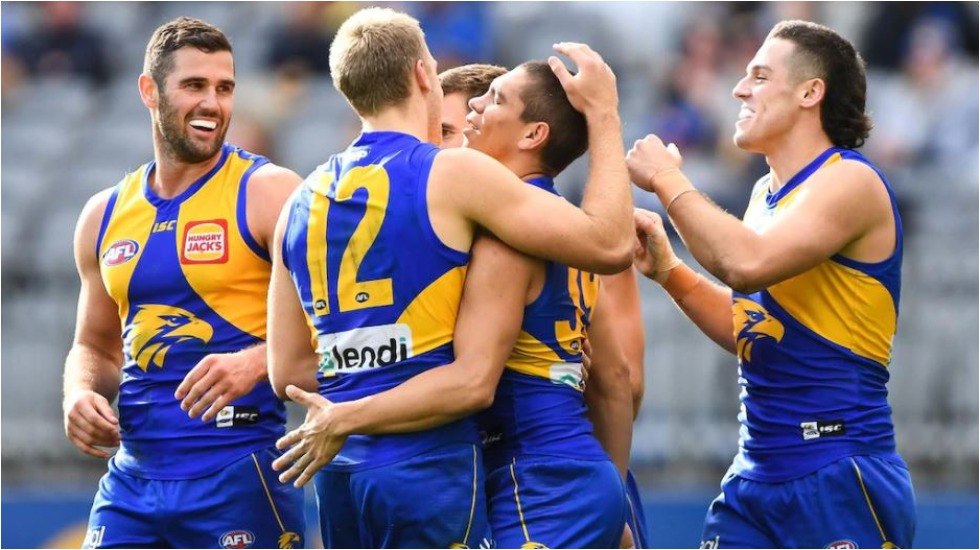
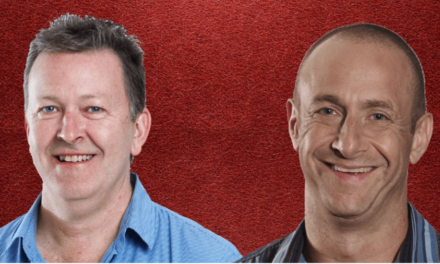
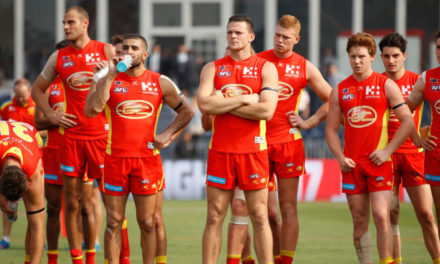
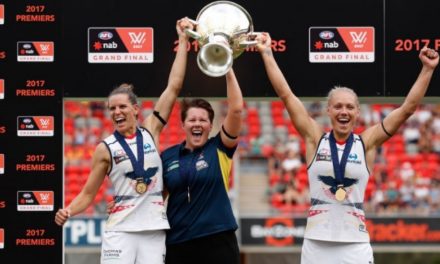
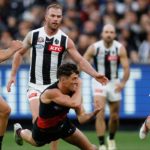
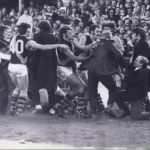


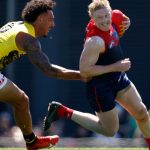

Much is made of the Eagles comments about the Hub, but the fact that in their second stint they had to play 5 games in 19 days and came out of that with a huge injury toll is largely ignored. Without that, 2 more wins and a top four spot was VERY likely.
Their interchange would suggest they have very little depth